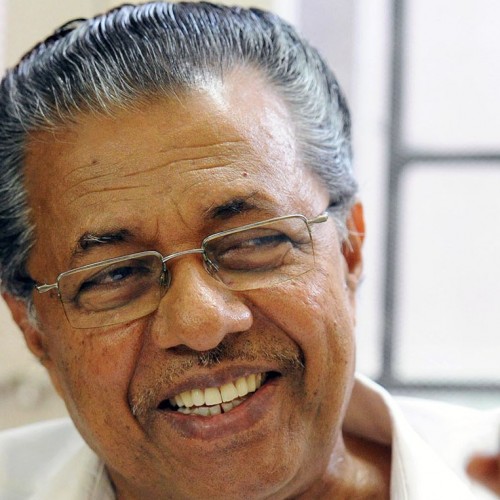Technology Is Reinventing the Travel Industry
Today we are in the midst of a technology revolution that is surrounding all our activities – including our travel industry as well. We are fortunate to witness some mind blowing innovations and technology adoption that is driving change in our industry.
As technology is rapidly and constantly evolving, it’s very difficult to predict what is going to happen in one year’s time, let alone 10. However, it is safe to say that technology is going to continue to become even more integrated in everyday life and continue to shift the way people live and do business. From a travel perspective, we will see more ‘smart’ technology or integration of artificial intelligence into travel technology. For example, in the future technology will have the ability to predict where the traveller wants to go for his or her next vacation, before the traveller types it in to the computer.
The advent of the Internet and increasing accessibility to new information technologies has initiated significant change in the travel and tourism industry in the last 10 years. The industry, in turn, has been presented with the urgent need and challenge to innovate. Companies and destinations are, therefore, rapidly rethinking strategies, innovating systems and processes and improving facilities and infrastructure to steer ahead of competition. Innovative ideas and technologies have been the backbone of the resilient change witnessed in the industry, and will continue to play the role of persistent catalysts for change in the near future.
In fact, one of the key trends which will impact the travel industry globally is the increased usage of mobile devices, especially smart phone. More and more people start to access internet through their handheld devices and travel agents will have to significantly up their game. To be able to offer a wide variety of choices, to keep pace with the customers and to differentiate themselves, travel agents will have to make technology the backbone of their operations. Travelers nowadays prefer to take their travel options beyond online maps and travel guides. They are turning to their phones to look up aircraft seat configuration, book and track taxis, reply to early hotel check-in requests, order room service and locate nearby colleagues.
There is an expanding digital world where customers have more options than ever to log on and browse for information. In this milieu, service providers like hotels and airlines find that it is important to consistently stay on top of the game or the customer’s mind in this case. Travel websites and agents connect a vast market today with hotels and airlines from the furthest corners of the world, all brought together on the same platform open for access by anyone, anywhere. Air travel bookings broke the confines of the airport and airline offices to reach travel agents across tier 2 and 3 cities. With a much more expansive market to tap into, the airline and travel industry was pushed to higher price competitiveness. Price has traditionally been a significant factor affecting online reservations and the driving force behind travel websites which promise hotel rooms and air tickets at the lowest prices.
Social media is another integral element in the evolution of the travel and tourism industry. The increased dependency on social media by travellers is growing faster than the travel industry itself. Facebook, Twitter, and YouTube are the most popular and effective social media networks for marketing within the industry. Hotels, airlines and other segments of the multibillion-dollar travel industry are (no wonder) aggressively tapping into social media, ramping up their use of online sites such as Facebook and Twitter to build loyalty to their brands. Airlines are maintaining their presence in social media sites by offering deals through social-mapping networks such as Loopt. From putting pictures, to creating a buzz, and inspiring them, will become the first point of interaction with the prospective customers. The result is a base of devoted followers that keeps coming back and keeps growing all the time.
Besides using technology to understand consumer behaviour, one will witness adoption of new technology innovation like creative rich content websites. Technology will also play a pivotal role in reducing costs by improvement in revenue management through optimized pricing model and higher degree of operational efficiency based on insight gathered through real time operational data.
The writing is clear on the wall. Unless, the travel and hospitality sector adopts technology, it will find the going difficult. The changing business environment and the dynamic consumer demands are transforming the business like never before. As a result, the industry is moving at a fast pace. And those who cannot match up with the speed of change risk losing out.
You might also like
Kerala CM launches the ambitious Malanad-Malabar project
Kerala to get a major boost for cruise tourism project worth Rs. 325-crore. Pinarayi Vijayan, Honorable Chief Minister of Kerala inaugurated the ambitious ‘Malanad-Malabar cruise tourism’ project worth Rs. 325-crore at
JW Marriott Phu Quoc Emerald Bay Resort & Spa set to open in Thailand
The flagship of JW Marriott Hotels & Resorts in Vietnam, JW Marriott Phu Quoc Emerald Bay Resort & Spa will open its doors to public later this month, making it
Etihad Aviation Group appoints new Chief Executive Officer for Engineering Division
Abdul Khaliq Saeed announced as CEO of Etihad Airways Engineering The Etihad Aviation Group (EAG) confirmed Abdul Khaliq Saeed as the new Chief Executive Officer for Etihad Airways Engineering, replacing Jeff Wilkinson,









